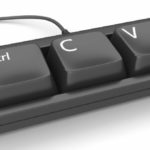
Metacognition: Knowledge and Regulation of Learning
The easier description of metacognition is “thinking about thinking.” To be metacognitive implies having knowledge of cognitive processes and having the ability to regulate them.

The easier description of metacognition is “thinking about thinking.” To be metacognitive implies having knowledge of cognitive processes and having the ability to regulate them.

Here’s a description that will resonate with many faculty: “Whole-class discussion often fell flat, so I shifted to heavier reliance on small-group discussion as a

It’s an expressive writing activity, and it couldn’t be much simpler or more straightforward. Before students start an exam, on a sheet fastened to the

It’s a senior-level ecology course and one in which students must develop a research grant proposal. They do their first draft of the proposal after

Some students are more challenging to teach than others. They require pedagogical skills of a different and higher order. Sometimes it’s easier to sigh and

We need to work more with students on seeing exams as something more than just grade generating experiences. Exams can be powerful encounters through which

Although some behaviors are pretty much universally identified as cheating (copying exam answers, for example), we’re not in agreement on everything. Particularly significant are disagreements

Cheating and its related issues have been studied extensively for decades. There’s an overwhelming amount of literature. However, results from the past and the present

Course workload is yet another of those amorphous terms regularly used in print and conversation for which we have loose and different understandings. It’s a

Emily Gravett writes insightfully about the disconnect between instructor and student course goals. She’s writing about religion courses and how academic goals, such as “analyzing